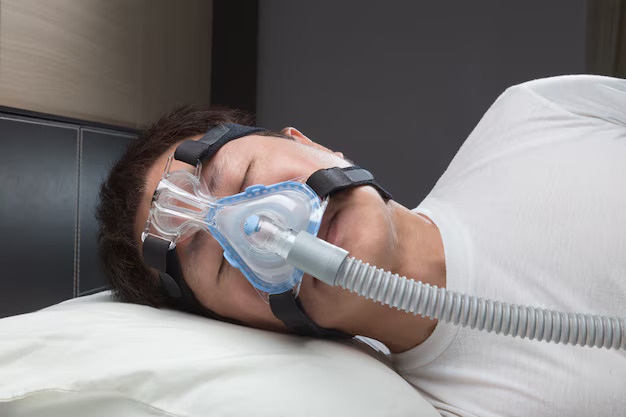Snoring is a common sleep issue that affects millions of people worldwide. While often brushed off as a harmless annoyance, persistent snoring can sometimes be a symptom of a more serious condition: sleep apnea. But does snoring always mean sleep apnea? The answer is no, not always—but it’s important to understand when snoring is simply noisy breathing and when it’s a warning sign of an underlying health problem.
Thank you for reading this post, don't forget to subscribe!In this article, we’ll explore the relationship between snoring and sleep apnea, how to tell the difference, and what steps to take if you or a loved one snores regularly.
What Is Snoring?
Snoring occurs when airflow through the nose and mouth is partially blocked during sleep. This obstruction causes the surrounding tissues to vibrate, producing the familiar snoring sound. Occasional snoring is common and can be triggered by:
- Nasal congestion (due to colds or allergies)
- Sleeping on your back
- Alcohol consumption before bedtime
- Obesity or excess weight
- Sleep deprivation
In these cases, snoring usually begins and does not indicate a serious medical issue. However, chronic or loud snoring may be a red flag for a condition known as obstructive sleep apnea (OSA).
What Is Sleep Apnea?
Sleep apnea is a potentially serious sleep disorder where breathing repeatedly stops and starts during the night. The most common type, obstructive sleep apnea, occurs when the throat muscles intermittently relax and block the airway.
Key symptoms of sleep apnea include:
- Loud, chronic snoring
- Gasping, choking, or pauses in breathing during sleep
- Excessive daytime sleepiness
- Morning headaches
- Difficulty concentrating
- Irritability or mood changes
- Dry mouth or sore throat upon waking
Sleep apnea not only disrupts your sleep cycle but also increases the risk of high blood pressure, heart disease, stroke, diabetes, and depression. Identifying and treating sleep apnea early is crucial for protecting your health. Still, here are some signs your snoring may be linked to sleep apnea or another health concern:
- You wake up feeling unrefreshed, even after a full night’s sleep
- You feel tired or drowsy during the day
- You wake up with headaches or a dry mouth
- Your partner reports choking sounds or long pauses in your breathing
- You have trouble staying asleep or fall asleep easily during the day
If any of these sound familiar, it’s best to consult a sleep specialist for proper evaluation.
Common Causes of Non-Apnea Snoring
Snoring doesn’t always signal a medical condition. In many cases, lifestyle factors or temporary conditions are the cause. These include:
- Allergies: Nasal inflammation can block airflow
- Colds or sinus infections: Temporary congestion contributes to snoring
- Alcohol use: Relaxes muscles in the throat, narrowing the airway
- Obesity: Extra tissue around the neck can restrict airflow
- Sleeping on your back: Gravity causes the tongue to fall backward
- Age: Throat muscles become weaker with age
Addressing these factors often leads to a significant reduction in snoring and better sleep quality.
When to Seek Medical Help
Not all snoring requires treatment, but if it’s affecting your quality of life or your partner’s, or if it might be a symptom of sleep apnea, it’s time to act. A doctor may recommend:
- Polysomnography (sleep study): To monitor breathing, brain waves, heart rate, and more
- Home sleep apnea tests: A more convenient option for many people
- Lifestyle changes: Weight loss, sleep position changes, or reducing alcohol intake
- CPAP therapy: A continuous positive airway pressure machine for sleep apnea
- Oral appliances: Custom devices that keep the airway open
- Surgery: In severe cases, to remove or reposition obstructive tissue
Tips to Reduce Snoring and Improve Sleep
Whether your snoring is mild or part of a larger issue, improving your sleep hygiene can make a big difference. Try these tips:
- Maintain a healthy weight to reduce throat pressure
- Sleep on your side to prevent tongue and soft palate collapse
- Avoid alcohol and sedatives before bedtime
- Treat nasal congestion with saline sprays or decongestants
- Use a humidifier to keep the airways moist
- Stay consistent with your sleep schedule
- Elevate your head with a supportive pillow
If snoring persists despite these changes, further evaluation may be needed.
Also read: The Role Of Snoring In Sleeping Position
Snoring vs. Sleep Apnea
So, does snoring always mean sleep apnea? No—but chronic, loud snoring should never be ignored, especially when it disrupts your rest or comes with other symptoms. Sleep apnea is a serious but treatable condition. The first step is recognizing the signs and seeking professional guidance.
Understanding the difference between snoring and sleep apnea can help you or your loved ones get the right care, improve sleep quality, and protect long-term health. If you’re unsure whether your snoring is harmless or something more, don’t guess—get tested.



